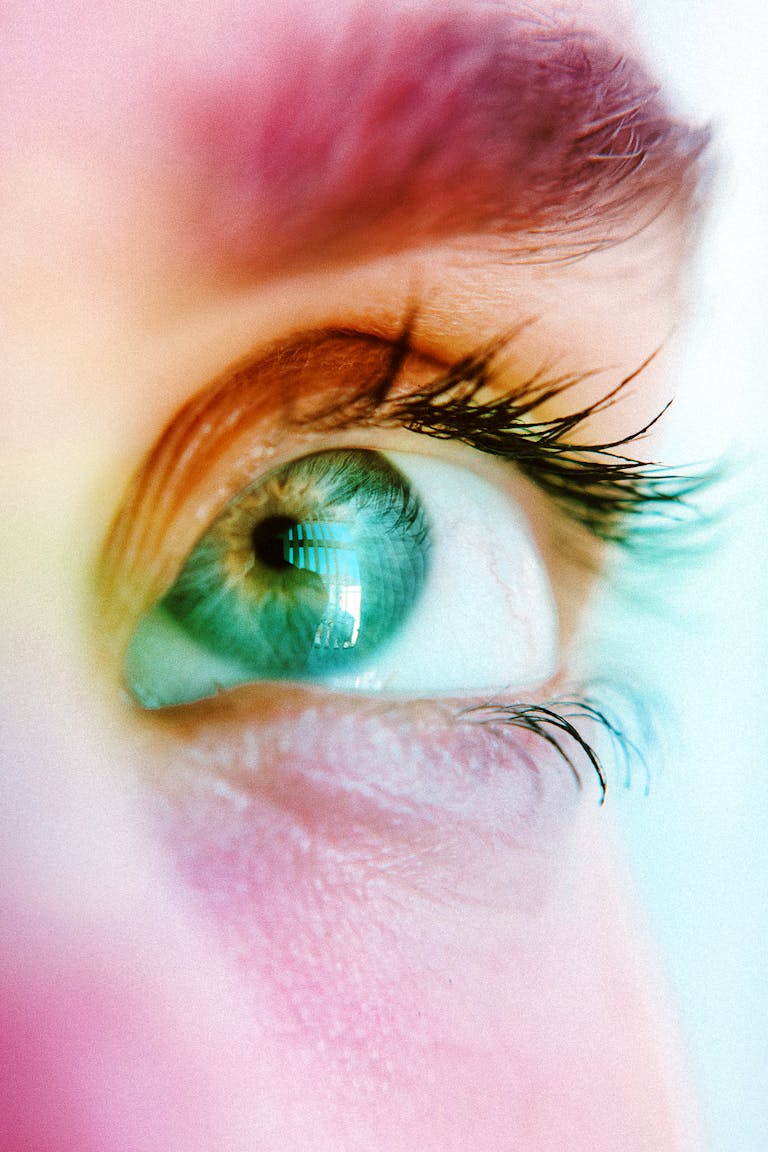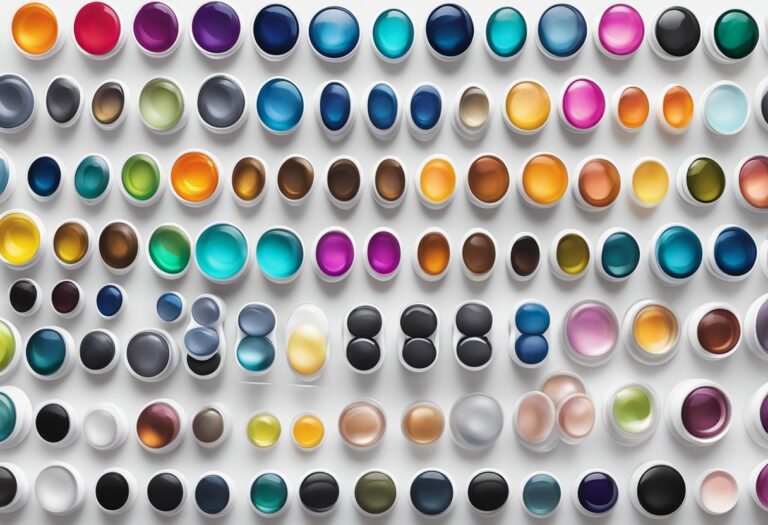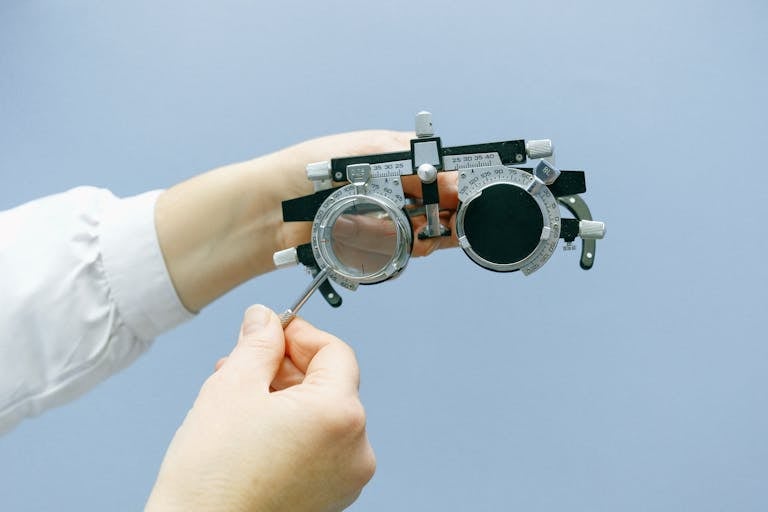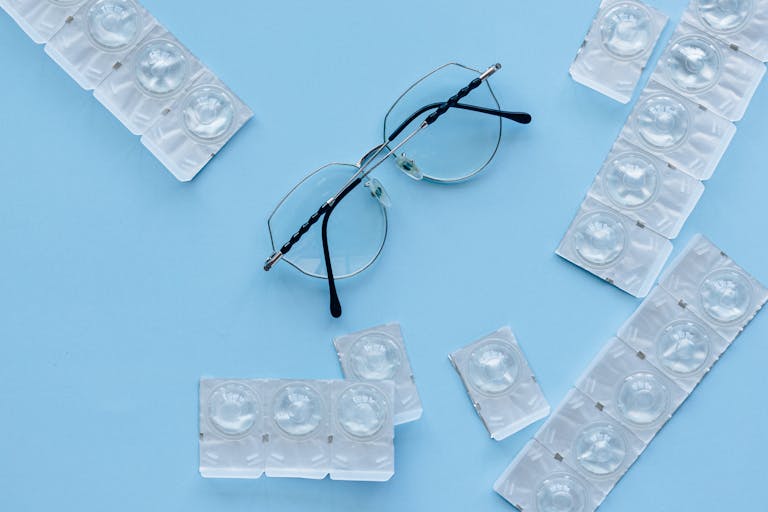Contact Prescription: Clear Vision for Your Eyes
Prescription contact lenses are a simple way to correct vision for many people. These lenses are custom-made based on a person’s specific vision needs. Getting the right prescription ensures that contact lenses help see clearly and comfortably.

Contact lenses are available in different types, such as daily wear or extended wear. They cater to various lifestyles and preferences. It’s important to follow the eye care provider’s guidance on how to use and care for the lenses for the best results.
Many people choose contact lenses for convenience and the benefit of not having to wear glasses. For those interested in switching to contacts, a visit to an eye care professional is necessary to get a proper fit and prescription.
Understanding Prescription Contact Lenses
Prescription contact lenses are designed to correct vision problems such as nearsightedness, farsightedness, and astigmatism. They offer an alternative to glasses, providing clear vision and a wider field of view.
Types of Vision Impairments
Several common vision issues can require prescription contact lenses. Nearsightedness means distant objects look blurry. Farsightedness involves blurred near vision. Astigmatism is caused by an irregularly-shaped cornea leading to distorted vision.
Presbyopia affects people over 40, making it hard to focus on close objects. Bifocal or multifocal lenses are often used to address presbyopia.
Each vision issue needs a specific lens type to improve sight effectively. An eye exam determines the right prescription, ensuring lenses address individual needs.
Contact Lenses Vs. Glasses
Contact lenses and glasses each have unique benefits. Contacts provide a full field of vision and won’t fog up or get splashed by rain. They are also less noticeable, suiting those who prefer not to wear glasses.
Spectacles offer eye protection from dust and foreign objects. They can be easier to handle for some, and they don’t require as frequent replacements as contacts.
Choosing between contacts and glasses often depends on lifestyle and comfort preferences. Some prefer alternating between both depending on their activities.
Choosing the Right Contact Lenses
Choosing contact lenses involves considering comfort, convenience, and lifestyle needs. Factors such as lens material and replacement frequency can impact eye health and satisfaction.
Lens Materials and Types
Contact lenses come in various materials, each offering distinct benefits. Soft lenses are made of gel-like plastics containing water, allowing oxygen to reach the eye for comfort. They suit many people because they are easy to adjust to and great for daily wear.
Rigid gas permeable (RGP) lenses, on the other hand, are durable and offer clear vision for correcting astigmatism or other complex prescriptions. These lenses maintain their shape but require a period of adaptation for some wearers.
Hybrid lenses combine the clarity of RGP lenses with the softness of hydrogels. They can provide comfort and sharp vision but may need specialty fitting. Understanding the benefits of each type helps in making an informed choice that matches individual needs.
Daily Disposable Contacts and Other Options
Daily disposable contacts, often called dailies, are single-use lenses discarded after each wear. They require minimal care, reducing the risk of infections and making them convenient for busy lifestyles or travelers.
Weekly or monthly lenses can be more economical and offer options in a variety of prescriptions and lens types. Users may need to maintain a cleaning routine to ensure eye health. Depending on activity levels and personal preference, these lenses can be a good alternative. Selecting the right lens schedule is crucial for comfort and eye health.
Eye Care and Maintenance

Maintaining eye health is key when using prescription contact lenses. This involves proper lens care to avoid infections and knowing how to manage any irritation that might occur.
Proper Lens Care
Contact lenses must be cleaned and disinfected regularly to prevent infections. It is recommended to use a sterile solution approved by eye care specialists. Users should never reuse old solution or top off what’s left, as fresh solution ensures lenses are properly sanitized.
Always wash hands with soap and water before handling lenses. Dry them with a clean, lint-free towel. Avoid touching the lenses with wet or soapy hands, as this can transfer irritants onto the lenses.
Keep the contact lens case clean by rinsing it with fresh solution and leaving it to air dry. Replace the case every three months to reduce the risk of contamination. Regular eye check-ups ensure the prescription remains accurate and the eyes stay healthy.
Dealing with Irritation
If irritation occurs, it’s essential to remove contact lenses immediately. This helps avoid further discomfort or damage. Common causes of irritation include dry eyes, lens deposits, or wearing the lenses too long.
Using lubricating eye drops can alleviate dryness, but ensure they are lens-compatible. If redness or pain persists, contact a doctor for advice and possible prescription adjustments.
Check if the lenses are damaged or expired, as these can cause irritation. Never wear contact lenses if they feel uncomfortable, as this may lead to infections or eye damage. Frequent communication with an eye care specialist helps quickly address issues and maintain healthy eyes.
Where to Purchase and What to Consider

When purchasing prescription contact lenses, it is important to weigh the pros and cons of buying from an optometrist versus retail stores. Additionally, understanding vision insurance benefits and taking advantage of promotions can lead to savings.
Optometrist Vs. Retail Choices
Optometrists are specialists who can provide a custom eye exam tailored to individual needs. Purchasing lenses directly from them might be more convenient, as the prescription can be filled right after the exam. They often offer a wider selection of brands like Acuvue.
On the other hand, retailers such as LensCrafters might offer better pricing but could require a valid prescription from an eye doctor. Retail stores often have promotions that can reduce costs, providing good value for budget-conscious buyers. It’s important to consider convenience, cost, and selection when choosing between these options.
Understanding Vision Benefits and Promotions
Having a clear grasp of one’s vision insurance is key. Policies often cover a portion of contact lens costs, which can alleviate expenses. Checking with an insurance provider about specific vision benefits is advisable.
Moreover, many eyewear retailers offer seasonal or brand-specific promotions. Brands like Acuvue sometimes run discounts that reduce contact lens prices. It is beneficial to watch for these deals, as combining them with vision benefits can lead to significant savings. Keeping an eye on offers ensures a more affordable purchase experience.





